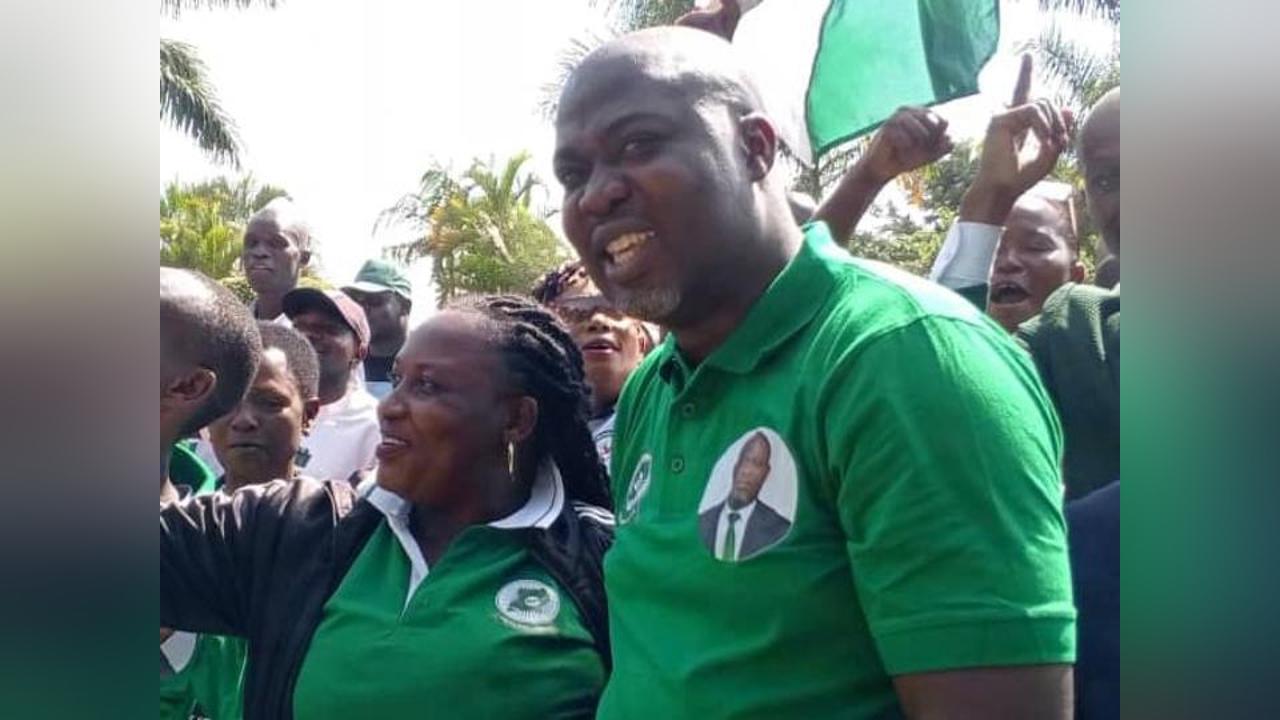Africa-Press – Uganda. The Democratic Party (DP) enters its national delegates’ conference in Mbarara City this weekend mired in internal discord and leadership uncertainty, as President General Norbert Mao seeks a fourth consecutive term amid growing discontent over his alliance with the ruling National Resistance Movement (NRM).
Running from May 30 to June 1, the conference was intended to be a moment of reflection and renewal. Instead, it has exposed a fierce contest for the soul of Uganda’s oldest political party, with Mao’s continued leadership now openly contested by key figures including Buikwe South MP Dr Michael Lulume Bayigga and Bukoto Central MP Richard Ssebamala.
Mao, who assumed the DP presidency in 2010 and was re-elected in 2015 with 898 votes against Bayigga’s 360, finds himself facing a more hostile environment than ever before.
His 2022 cooperation agreement with the NRM — which landed him the post of Minister for Justice and Constitutional Affairs — remains the most polarising issue, splitting the party between those defending the strategic partnership and others accusing him of ideological betrayal.
“DP is alive, strong, and nationwide,” Mao told delegates, insisting that the cooperation has not eroded the party’s identity but instead positioned it to influence policy from within.
Yet many party faithful remain unconvinced, arguing that Mao has mortgaged the DP’s independence for personal gain.
Dr Bayigga, once Mao’s ally and a former party Secretary General, is now one of his chief critics.
Rallying delegates at the conference, he portrayed himself as the steward of DP’s true legacy.
“We have come back here with faith that these people want back their party into the hands they can trust,” Bayigga said.
“Somebody who is solid and honest, who knows the party better than any other, and has worked for it.”
Ssebamala, who entered the race with a defiant message, said Mao’s leadership had hollowed out the party and alienated its grassroots.
“People are tired of adding us to NRM,” he said.
“They need true leadership. A leader who will speak for the voiceless, not take them to NRM without their consent. We don’t have councillors, we don’t have MPs, and people are continuing to run away from DP. These are the problems we want to address.”
The criticism has not been limited to the party head. DP’s National Organising Secretary, Herbert Rutagwera, acknowledged the ongoing turbulence, pointing to allegations of bias and manipulation in the delegate selection process.
“As a party, we have been having internal issues,” Rutagwera admitted.
“Each camp has its own allegations. We hear that some candidates are not the favoured delegates.”
Delegates, who are elected at the constituency level, wield the power to choose the next President General.
But questions over their independence — and over whether Mao loyalists influenced the process — have further clouded the conference’s credibility.
This year’s meeting, held at a time when DP’s parliamentary and local government presence is at its weakest in decades, has drawn not only party leaders but also curious observers watching to see whether Uganda’s once-formidable opposition party can reclaim its footing.
For many in attendance, the stakes are existential.
The DP, founded in 1954 and once a dominant force in Ugandan politics, now stands accused by its own members of abandoning its principles and becoming politically irrelevant.
Whether Mao retains his position or is unseated, the road ahead for the Democratic Party is fraught.
A leadership reshuffle alone will not resolve the ideological fractures that have splintered the party.
Whoever emerges at the helm must face the daunting challenge of rebuilding trust, reinvigorating structures, and convincing Ugandans that the DP can still speak to the hopes of a modern electorate.
As the conference unfolds in Mbarara, the party faithful are left to reckon with a hard truth: the struggle for DP’s future may be less about personalities than about whether it still has a coherent identity worth fighting for.
For More News And Analysis About Uganda Follow Africa-Press






